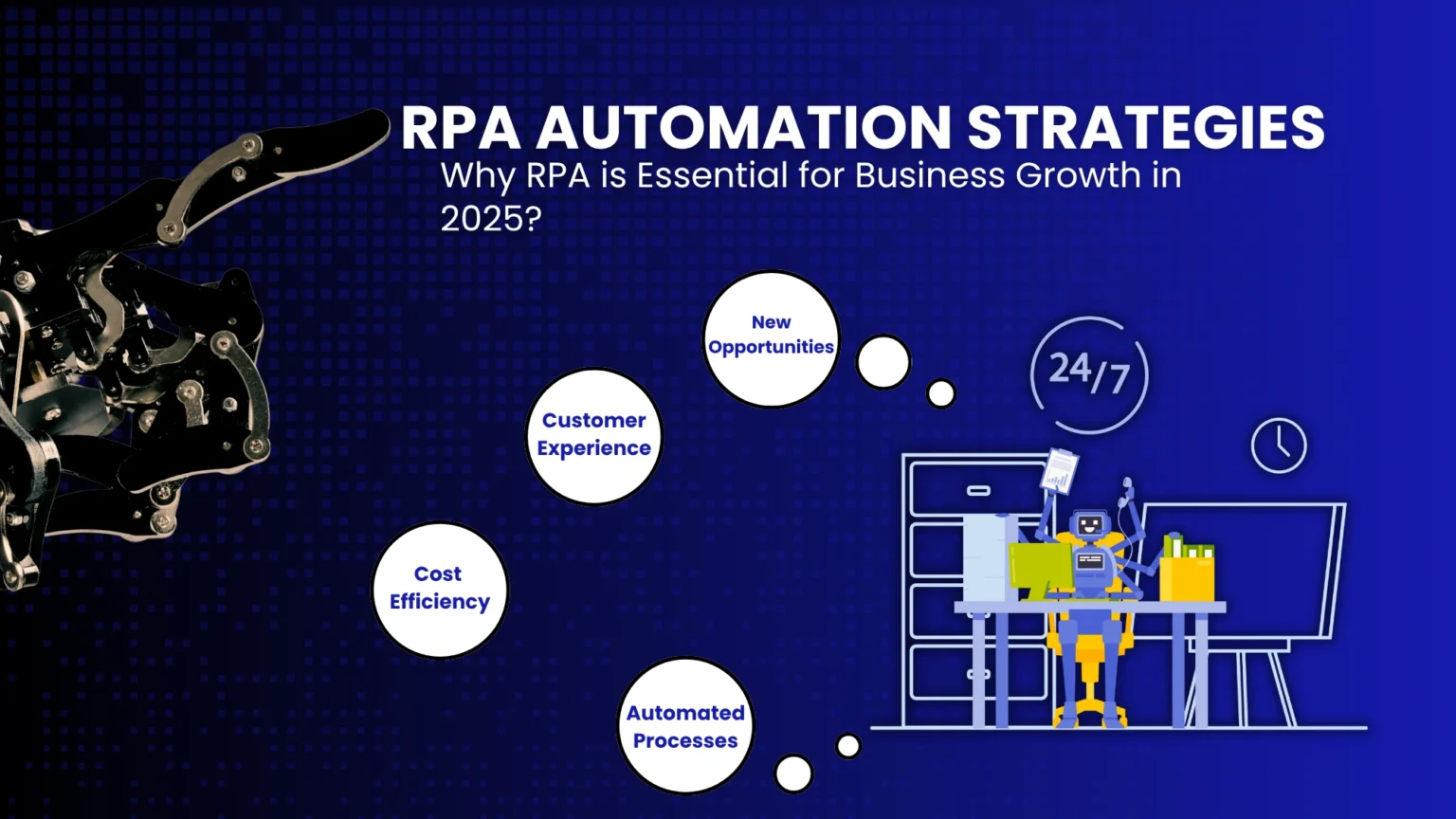6 Signs You’re About to Hire the Wrong IT Pro (And What to Do Instead)

- The Gap Between Resumes and Reality: Verifying Real-World IT Expertise
- From System Failures to Solutions: Assessing Problem-Solving in IT Hiring
- Poor Communication Skills: A Hidden Barrier in IT Hiring
- Stagnation in IT: Identifying a Lack of Curiosity
- Job Hopping in IT: A Cause for Concern?
- Integrity in IT: Beyond Technical Skills
- From Red Flags to Reliable Talent: Optimizing Your IT Hiring Process
Are You Hiring the Right IT Talent? Here’s How to Avoid Costly Mistakes. In today’s hyper-competitive market, the right IT talent can drive innovation, productivity, and security. But have you considered the risks of a bad hire?
A poor hiring decision isn’t just a setback—it’s a business disruptor, leading to wasted resources, project delays, and security vulnerabilities. Hiring the right candidate goes beyond technical skills; cultural fit, work ethic, and adaptability are equally crucial.
At Infosprint Technologies, we follow a proven framework to identify top IT talent and avoid costly hiring mistakes. To help you make informed decisions, here are six red flags to watch out for when recruiting IT professionals.
1. The Gap Between Resumes and Reality: Verifying Real-World IT Expertise
Most resumes are packed with skills and expertise without sound backing. Job seekers rebuild their resumes according to the company’s job description, which can vex staffing teams when screening applicants. A lot of IT candidates lack true hands-on experience, despite impressive resumes
Why is hands-on expertise crucial for IT roles?
As technology is evolving rapidly, having only theoretical knowledge is insufficient. IT professionals must be able to apply their knowledge in real-world situations.
Hands-on expertise helps candidates to:
- Critical thinking: Develop critical thinking skills, the most required skills for IT professionals.
- New technology: Adapting to new technology by understanding the application’s core through direct exposure to the tool, software, or application.
- Meeting deadlines: Working under extreme pressure is common in IT roles as they have tight schedules.
- Communication is expected from them as they must collaborate with other departments to meet the deadlines and boost the productivity of each project.
The Warning Signs
- Over-reliance on certifications: Most applications rely heavily on applicants’ certifications to boost their resumes, but that doesn’t necessarily prove their ability to handle real-world projects.
- Inability to describe past projects: When asked about previous projects, candidates without hands-on experience may find it challenging to detail their contributions.
- Struggling with coding or technical challenges: A strong IT candidate should be able to demonstrate their skills in real-time assessments.
- Excessive reliance on theoretical explanations rather than practical solutions: Some candidates may articulate concepts in an overly academic manner, yet fail to demonstrate their application in real-world situations.
How to Avoid Hiring Candidates Without Hands-on Experience
- Conduct technical interviews with real-world scenarios.
- Assign coding tests or troubleshooting exercises.
- Check GitHub repositories, portfolios, or contributions to open-source projects.
2. From System Failures to Solutions: Assessing Problem-Solving in IT Hiring
The IT industry has high-stakes situations such as system failures, cyberattacks, and software bugs. IT professionals must think critically, adapt new solutions, experiment, and solve problems efficiently. A candidate with poor problem-solving skills will struggle, leading to costly delays and inefficiencies.
Why Problem-Solving Skills Matter in IT
Problem solving is the heart of IT. With evolving technology, unexpected challenges, and problems, IT professionals must handle complex issues quickly.
A strong problem solver can:
- Diagnose and fix issues quickly: IT professionals with strong problem-solving skills can diagnose and repair problems quickly and reduce downtime.
- Informed decisions: Employees must think critically under pressure and make informed decisions.
- Adapt to new technologies: They must adapt to new technologies and understand their wireframes to tackle problems creatively.
- Work independently without constantly relying on others for solutions.
The Warning Signs
- Candidate struggling with problem-solving questions: Candidates in the interview who struggle with poor problem-solving skills fail to analyze the question, structure their thoughts toward the solutions, seem overwhelmed, and attempt to guess rather than solve it methodically.
- Inability to think under pressure: Candidates often freeze or panic under high pressure. When pressured to answer, they offer generic answers without substance and fail to prioritize tasks effectively.
- Dependence on other technicians: Rather than taking initiative in solving problems, they frequently rely on colleagues for complex issues.
- Lack of creativity: Professionals often need to think outside the box, especially when tackling software optimization, security vulnerabilities, or performance improvements.
How to Avoid Hiring Candidates with Poor Problem-Solving Skills
- Include Scenario-Based Problem-Solving Exercises in Interviews
- Ask Candidates to Walk Through Past Problem-Solving Experiences
- Evaluate Their Approach Rather Than Just the Final Answer
3. Poor Communication Skills: A Hidden Barrier in IT Hiring
In the IT world, technical skills are critical, but they are not the only factor that matters. Communication is just as important as it can significantly affect team efficiency and productivity. Effective communication is essential for explaining complex issues to clients, collaborating with other departments, and documenting technical processes.
Why do Communication skills matter in IT?
IT professionals are people whose only task is to focus on code or configurations behind the scenes. But the reality is different.
IT professionals require effective communication to:
- Cross-team collaboration: Developers work with product managers, and system admins work with security teams. Everyone must be on the same page.
- Client interactions: Tech teams often need to simplify their language when speaking to non-technical clients or stakeholders.
- Documentation & support: Clear documentation ensures smoother onboarding, easier troubleshooting, and long-term project sustainability.
- Remote & hybrid work: With distributed teams, clear digital communication is now more important than ever.
The Warning Signs
- Difficulty explaining in simple terms: When candidates cannot translate technical jargon into simple language.
- Writing skills: Effective communication is vital in account management. Key tasks include writing bug reports, responding to emails, and updating project documentation. Disorganized content and grammatical mistakes on a resume are warning signs of poor writing skills.
- Unclear, vague, or technical response: Effective communicators ensure they are understood. Some IT professionals may use vague or overly technical language, often reflecting their lack of knowledge or interpersonal skills.
How to Avoid Hiring Candidates with Poor Communication Skills:
- Conduct behavioral interviews focused on collaboration and teamwork.
- Ask candidates to explain a complex concept in layman’s terms.
- Assess written communication through emails or sample reports.

Save Weeks of Analysis
4. Stagnation in IT: Identifying a Lack of Curiosity
In the constantly changing world of IT, remaining stagnant is not an option. The best professionals are technically skilled, deeply curious, continuously learning, and passionate. When hiring IT talent, a lack of enthusiasm or curiosity for technology should be considered a significant red flag.
Why Passion & Curiosity Matter in IT
Technology never stands still. New programming languages, frameworks, tools, and methodologies emerge constantly. From AI and cybersecurity to cloud and DevOps, innovation is the norm, not the exception.
IT professionals need to:
- Stay up to date with industry trends and disruptions.
- Experiment with new tools or platforms.
- Be open to lifelong learning.
- Solve problems proactively, not just reactively.
Passionate tech professionals don’t just adapt—they lead. Explore our blog for expert insights on cybersecurity, cloud computing, Automation, software development, and more.
The Warning Signs
- No personal projects or online learning initiatives: Tech enthusiasts often engage in side projects like creating personal websites, contributing to open-source, or experimenting with APIs and new tools outside of their 9–5 jobs.
- Lack of awareness about emerging trends: A candidate should be familiar with trends shaping their domain.
- Disinterest in industry conversations or Trends: Tech professionals don’t need to be influencers, but they should show genuine interest in the field.
- No participation in forums, hackathons, or communities: Involvement in the broader tech community is often a sign of enthusiasm and collaboration.
How to Avoid Hiring Candidates Who Lack Passion:
- Ask about recent industry trends and their opinions on them.
- Evaluate their engagement with the tech community.
- Look for certifications or self-learning courses.
5. Job Hopping in IT: A Cause for Concern?
In the competitive employment market of today, it is typical for individuals to change jobs every few years. Professionals frequently switch roles in pursuit of better opportunities, higher salaries, or personal growth. However, frequent job changes without a clear or progressive career path can raise concerns for employers when hiring IT talent.
The Warning Signs
- Multiple roles lasting less than a year: While short-term contracts or freelance roles are acceptable in some cases, a pattern of staying for 6–10 months repeatedly (especially in full-time jobs) is concerning.
- No clear career progressions: A healthy career trajectory should show some form of growth, such as moving from junior to senior roles, or branching into leadership or specialization.
- Vague explanations for job changes: If a candidate is evasive, overly general (“It wasn’t a good fit”), or negative about previous employers, it could be a sign of unresolved issues.
- Signs of Conflict or Poor Work Relationships: If candidates repeatedly reference issues with management, team conflicts, or dissatisfaction without taking ownership, it may indicate behavioral problems or adaptability issues.
How To Avoid Hiring a Chronic Job Hopper
- Ask candidates to explain their career moves and goals.
- Check references to validate past employment experiences.
- Look for consistent skill development in their resume.
6. Integrity in IT: Beyond Technical Skills
In the IT industry, where professionals frequently manage sensitive data, critical infrastructure, proprietary code, and user privacy, trustworthiness and ethical behavior are essential. A technically skilled candidate holds little value if they cannot be relied upon to act with integrity.
This red flag isn’t just about someone being dishonest—it could be as subtle as exaggerating their experience, misrepresenting their work, or being careless with sensitive information.
Why is Ethical Behavior Important for IT roles?
- Sensitive data: IT professionals are often gatekeepers to sensitive systems and data.
- Data leaks: One unethical act—like downloading unauthorized software or leaking internal documents—can lead to legal liabilities and financial losses.
- Transparent work culture: Ethical employees contribute to a strong, transparent culture, whereas unethical ones introduce risk and potential reputational damage.
- The High Cost of Regulatory Failure: Compliance violations can have detrimental effects in sectors that are heavily regulated like finance, healthcare, or government tech.
The Warning Signs
- Inconsistency in resume details: If the information in the resume and the information found during reference checks don’t match, it’s a red flag.
- Negative feedback from former employer: While conducting reference check, consistent mention of poor behavior, missed deadlines, or issues with honesty are concerning.
- Sharing confidential information from past jobs: If a candidate openly talks about internal tools, client data, or business strategies from their previous employers, they could do the same with your organization.
- Avoiding past project details: If the candidate struggles to provide honest accounts of what has worked or deflects blame when they fail, this may lead to poor behavior or exaggerated roles.
How to Avoid Hiring Unreliable and Unethical Candidates?
- Verify references and conduct a thorough background check.
- Ask ethics-based situation questions.
- Observe reactions to questions about mistakes.
From Red Flags to Reliable Talent: Optimizing Your IT Hiring Process
Hiring the right IT talent is more than just finding someone with technical skills; it requires careful evaluation of experience, problem-solving abilities, communication, passion, reliability, and ethical conduct. By watching out for these six red flags, organizations can improve their hiring decisions, build strong IT teams, and ensure long-term success.
If you’re looking for top IT talent with a proven track record, partner with Infosprint Technologies for your hiring needs. Our specialty is matching companies with competent and trustworthy IT specialists..
Realted Posts

RPA automation strategies: Why RPA is essential for business growth in 2025

Still Stuck with Legacy Systems? Upgrade Your Business with Cloud RPA




